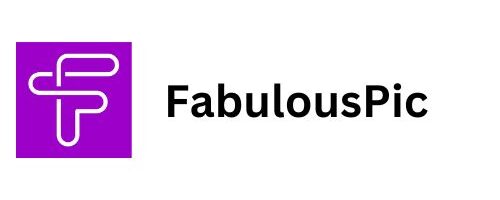Why High-Quality Content Still Wins
The digital landscape constantly shifts, but one principle stands the test of time: superior, user-centric content is the bedrock of organic success. People turn to search engines for answers, and search engines reward well-researched, original information. When sites invest in content that solves real problems or fulfills genuine needs, they attract more visitors, foster engagement, and build trust over the long term. Businesses looking for a strong and lasting online presence often turn to an expert SEO agency to ensure their content strategy is sustainable and aligned with evolving search standards.
Search engines like Google prioritize pages that consistently deliver value. When visitors land on your site and find content that addresses their questions comprehensively, they’re more likely to explore further, reducing bounce rates and increasing dwell time. High-quality content frequently earns organic backlinks, further amplifying your ranking signals and reinforcing your reputation as an authority. According to Search Engine Journal, authoritative and original articles consistently outperform shallow or duplicated materials, solidifying their place at the top of search results.
Getting to Know Audience Intent
Sustainable organic strategies are built on deeply understanding your audience’s true motivations. Knowing whether users want to purchase, research, or compare fuels, more brilliant keyword selection, and more compelling content design. Identifying and mapping user journeys allows you to deliver tailored and intuitive experiences. This approach increases engagement and positions your site as a trusted resource across each stage of the decision-making process.
Techniques like user persona development, analyzing on-site search data, and reviewing feedback or comments give insight into audience expectations. When your content closely matches search intent, visitors are more likely to convert—from casual browsers to loyal customers. Real-world success stories abound where organizations that align their messaging with intent record measurable growth in conversions and long-term customer relationships. Audience insight is a critical competitive edge for marketers striving to create deeply resonant experiences.
Rethinking Keyword Research
Keyword research in today’s SEO environment goes far beyond search volume metrics. The rise of semantic search and advances in natural language processing have changed the playing field. Success now hinges on constructing content clusters around related topics, exploring long-tail possibilities, and understanding context. Instead of relying on exhaustive keyword lists, focusing on comprehensive themes and intent-based queries results in richer, more relevant content to meet user needs.
Google’s updates, including changes brought on by their BERT and MUM algorithms, mean that search engines can now interpret context and intent with greater nuance than ever. Winning strategies embrace this evolution, addressing broad questions with supporting detail and covering subtopics within main thematic pieces. As Forbes highlighted, future-proofing your keyword research is about creating a content ecosystem that answers related questions and navigates users through an interconnected journey.
Building Trust With Authoritative Links
One of the most solid indicators of credibility in the digital world is the profile of your backlinks. Earning links from reputable sources—such as educational institutions, authorized industry publications, and governmental organizations—signals users and search engines that your content is valuable and trustworthy. Instead of seeking many links, focus on cultivating genuine relationships and contributing thought leadership through guest posts, data-driven studies, or industry roundups.
Digital PR and strategic outreach can amplify the impact of your most noteworthy assets, making them visible to journalists, bloggers, and influencers who can expand your reach organically. The result is improved rankings and heightened brand authority and referral traffic, ensuring that your growth is durable and future-proof.
Smart On-Page Optimization Techniques
Title Tags and Meta Descriptions
Craft clear, compelling titles and meta descriptions that align with search intent and include targeted keywords. This simple tactic significantly improves click-through rates and ensures your listings stand out in competitive search results.
Header Tags and Structure
Organize your content into logical sections using header tags. Hierarchical formatting not only aids user readability but also helps search engines understand your page structure, boosting your odds of ranking for featured snippets and related questions.
Internal Linking and Rich Media
Guide users through your site with well-placed internal links to related articles, resources, or services. Complement text with images, infographics, or video to enhance comprehension and engagement. Even minor improvements, such as optimizing image size or adding alt text, can yield outsized visibility and user satisfaction results.
Laying the Technical SEO Groundwork
An excellent content strategy is only as strong as the technical foundation beneath it. Fast-loading pages, streamlined navigation, and flawless mobile responsiveness are non-negotiable in a world where user patience is limited. Broken links, crawl errors, or poor site structure can stymie growth regardless of content quality. Implement secure protocols (HTTPS), maintain accurate XML sitemaps, and regularly audit your website for technical health.
Monitoring and improving core web vitals—such as loading performance, interactivity, and visual stability—can provide a crucial edge as search engines emphasize user experience indicators more. Regular maintenance helps your site stay agile and adaptable amid search ranking changes.
Keeping Pace With Algorithm Updates
Staying agile is essential as search engines routinely roll out significant, incremental changes. From broad core updates to tweaks focused on page experience or spam prevention, each adjustment can impact your search visibility. Commitment to ongoing learning and adaptation is imperative; monitor authoritative SEO news sources and remain open to testing new tactics.
Recent updates have underscored the importance of usability, content relevance, and intent alignment. Sites that prioritize these aspects consistently weather algorithm shifts with minimal disruption, while those reliant on short-term tricks often see setbacks. Proactive adaptation is the hallmark of resilient organic growth.
Assessing Results and Staying Agile
Sustained organic growth comes from diligent measurement, analysis, and iteration. Utilize analytics tools such as Google Analytics and Search Console to track traffic sources, conversion paths, and page-level performance. Establish clear KPIs—whether organic traffic, rankings, or leads—and revisit them often.
Regularly reviewing results and embracing a culture of experimentation ensures you’ll catch early signs of trend shifts or technical issues. Adapt strategies when data suggests, and be prepared to update or improve content as your market or audience evolves. This data-driven mindset guarantees that your site remains competitive and continues to deliver value to users over time.







